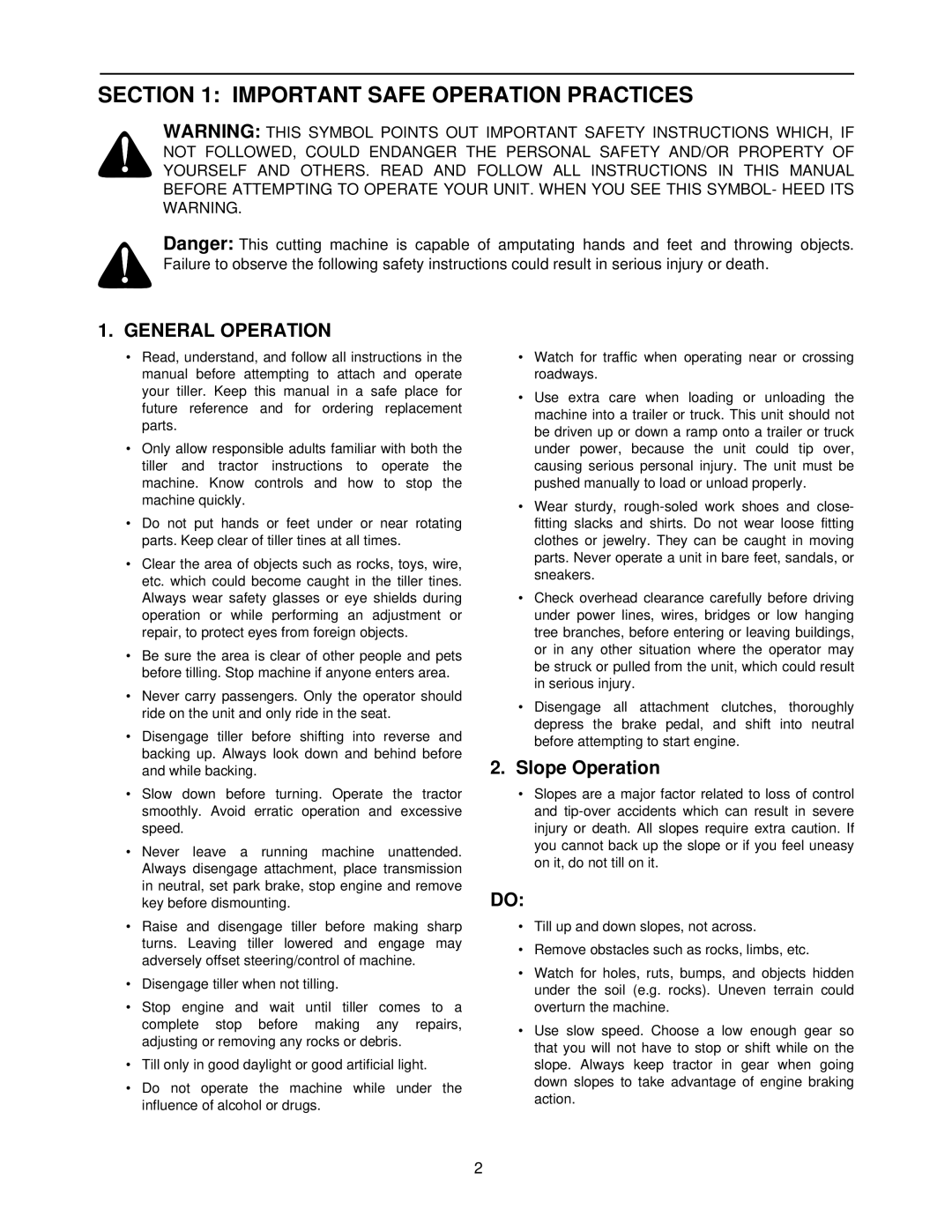190-758 specifications
The Bolens 190-758 is a remarkable lawn and garden tractor that has made its mark in the world of outdoor power equipment. Designed for both residential and semi-commercial use, this model combines power, versatility, and user-friendly features to deliver exceptional performance for landscaping and gardening tasks.One of the standout features of the Bolens 190-758 is its robust engine. Equipped with a powerful 19 horsepower engine, it provides the necessary strength to handle a variety of mowing and hauling tasks. This engine is designed for both reliability and efficiency, ensuring that the mower can tackle tough terrain without compromising fuel economy. Additionally, the mower operates with a hydrostatic transmission, allowing for smooth and precise control over speed and direction, making it easier for users to maneuver around obstacles and navigate tight spaces.
The cutting deck of the Bolens 190-758 is another key highlight. With a mowing deck that typically spans 42 inches, it allows for a wider cutting path, enabling users to cover more ground in less time. The deck is designed for durability and efficiency, featuring adjustable cutting heights that can be easily modified to achieve the desired grass length. This versatility is particularly beneficial for homeowners who may wish to maintain their lawns at different heights during various seasons.
Ergonomically designed for user comfort, the Bolens 190-758 possesses a comfortable seat and an intuitive dashboard that places all controls within easy reach. This design ensures that long hours of operation do not lead to excessive fatigue, allowing users to focus on the task at hand. Moreover, the inclusion of a soft-grip steering wheel enhances overall handling and comfort.
In terms of technology, the Bolens 190-758 is equipped with innovative features such as cruise control, which helps maintain a consistent speed while mowing, reducing the physical strain on the operator. Additionally, its easy-to-repair design means that routine maintenance can be performed with minimal hassle, extending the lifespan of the tractor.
Overall, the Bolens 190-758 lawn tractor stands out for its powerful performance, user-oriented design, and versatility, making it an excellent choice for homeowners and landscapers looking to maintain their outdoor spaces efficiently and effectively. Its balance of strength and comfort positions it as a reliable workhorse for all types of turf management tasks.

